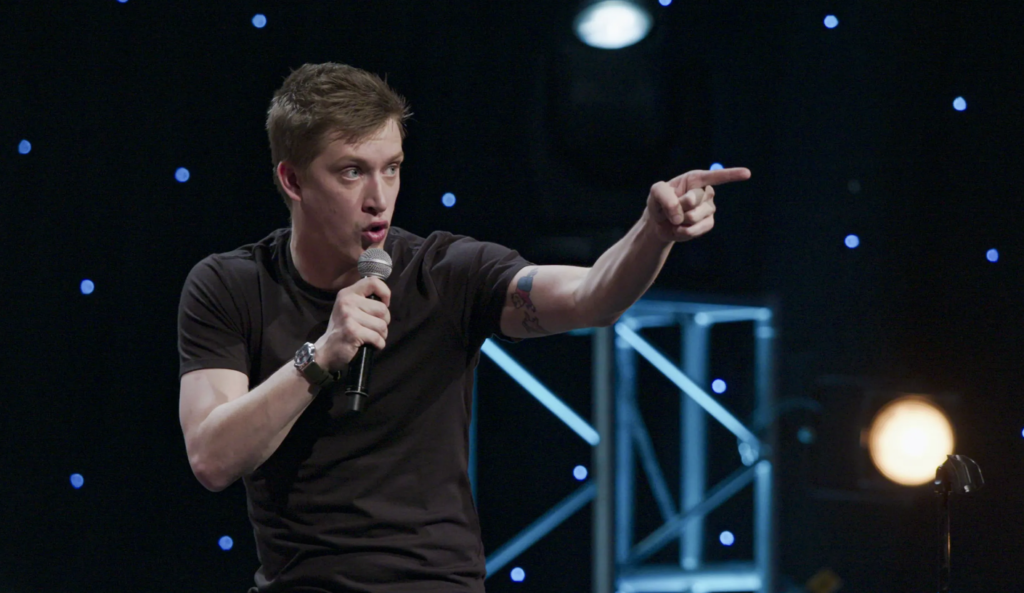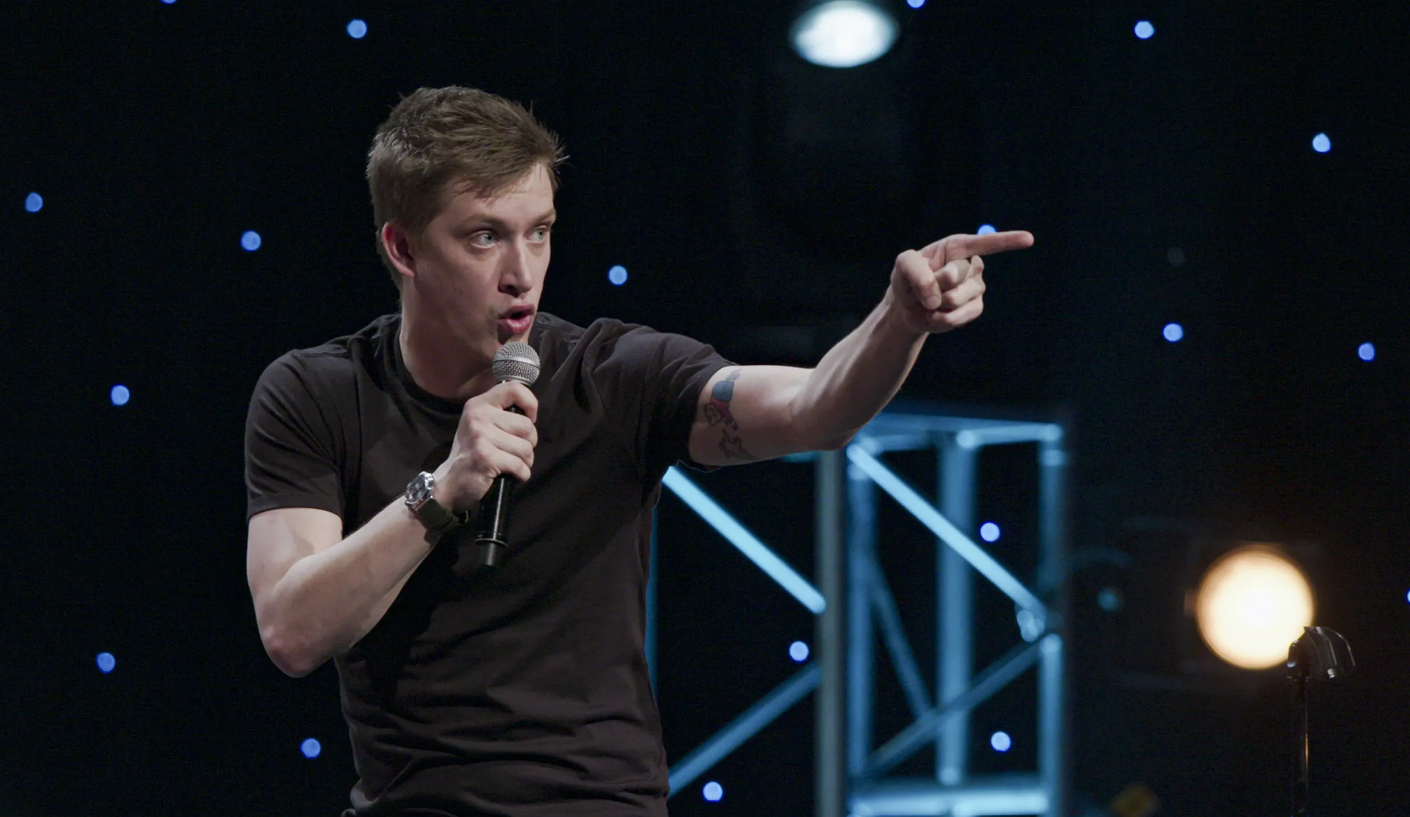TW: Death, Sexual Assault, and Transphobia
“She’s in heaven, I’m on Netflix, it all worked out” claims a triumphant Taylor Tomlinson as she strikes a power pose at the audience midway through her second Netflix comedy special Look At You. The “she” being referred to is her mother who passed away when Tomlinson was just eight years old. Now, death as a concept may seem to be neither inviting humour nor inherently funny to most people, but imagine the relief of realising that there’s one less Republican in the World because your dad died. That’s one of the 45 Jokes About My Dead Dad that Laurie Kilmartin tells in her most recent comedy special. Whether it is intended or not, offence is taken more often than not when tragedy becomes the subject of comedy, but the truth is that they are not opposites. In the words of Ms. Pat performing her special, Y’all Wanna Hear Something Crazy?, “when you can laugh at it, that means you got control of it.”
Daniel Sloss’ special X became viral because he talks about the sexual assault of a close friend by another close friend, and in the process, he recounts three jokes on the subject made by the victim herself. He always addresses the therapeutic effect of dabbling in dark humour. Laughing about a tragic incident is not the same as being insincere about the grief it causes. Insincerity would involve irresponsibly making fun of the tragedy, in the form of laughing at the incident and its victim. That would look like Dave Chappelle proudly bragging about enjoying “punching down” in his latest special The Dreamer. It’s more entertaining to hear Sloss, in his special Dark, recounting an anecdote of his sister, who suffered from cerebral palsy, being mistakenly thought to have died because her limp body was being carried by his mother while walking away from a car crash they had just survived.

Not only is the second of the two examples acceptable because it simply acknowledges the humorous circumstance a condition can lead to, but it is also funnier because there’s a story to go with it. The best-written joke comes in the form of a story told funnily, accompanied by a well-timed delivery of a funny observation. Chappelle, too, opens his aforementioned special with a four-minute-long story of meeting Jim Carrey soon after the death of his father. The punchline, however, is a joke directed at transgender people. It’s intentionally offensive, but instead of simply an eye-roll and a dismissal which his impression of a person in a wheelchair will hopefully elicit, this gets a response, because he built up to it with a four-minute-long anecdote.
The power of storytelling as a comedic device cannot be underestimated. Patton Oswalt delivers hilarious punchlines on various subjects including public brawls in his special Annihilation, before he closes it with a segment about his wife’s death. He tells a story of coming across one family loudly arguing and another family blasting Celine Dion’s ‘My Heart Will Go On’ at the cemetery when he went there to see his wife’s grave. Comedy becomes the medium to alleviate the tension introduced by his wife’s death, but the loss is not a subject of comedy for him.
How dark is too dark is a matter of debate, but the best comedy special will focus on telling a story rather than delivering punchlines one after the other. It’s not a feature film, but a stand-up special does come with an extended runtime, which can only be justified by giving the audience an overarching narrative to follow, broken down into anecdotes that may contain punchlines but carry truth. To quote Hannah Gadsby from her special Nanette, “Laughter is not our medicine. Stories hold our cure.” Even Sloss, while making respectful jokes about grave issues, refuses to be comical about sexual assault, a strategy adopted by Cameron Esposito in Rape Jokes as well. She recounts some extended anecdotes which are hilarious despite being unfunny situations, but just honestly speaks about her experience with rape, without any jokes. This technique creates a tension which isn’t resolved by any jokes and thus conveys the grimness of the circumstance that a victim experiences in the moment. Much like the perpetrator didn’t offer a way out for them, the comedian doesn’t give us an easy way out through a joke, but these specials prove that they have, or are channelling, the energy into a creative outlet to spread awareness and hopefully bring change.George Carlin is arguably the best stand-up comedian ever, but his style of delivering punchlines every minute no longer seems to compel as much as a well-told story, narrated humorously. Or simply authentically. As Alyssa Limperis demonstrates in her special No More Bad Days, comedy is not just about eliciting laughter. She talks about the loss of her father without joking about it but is humorous throughout the set. Sincerity is more important than laughter, as the former resists “punching down”, but humour can also often be the only means of engaging with grief. Today, comedy can (un)comfortably coexist with tragedy. It needs to.

